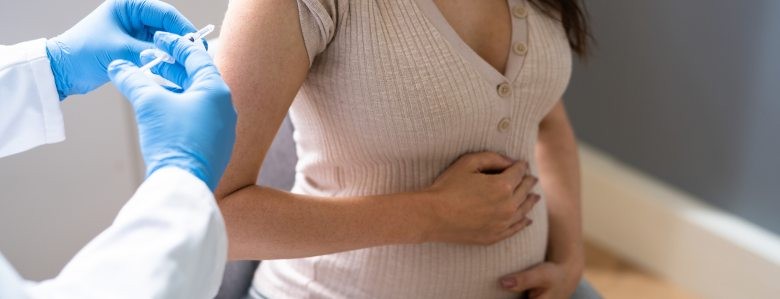Creating Healthier Families One Shot at a Time
September 23, 2021

By Paul Baumgartner, MD, MPH, Tondy Baumgartner, MD, Dionne Drakulich, MD, Leah Miller, MD, MPH, Mariah Hill, DNP, CNM, APRN
As OB/GYNs with Community Physician Group, our goal is to always provide the best possible care and medical advice for expectant mothers and females who plan to become pregnant. One of the most important conversations we’ve had lately with patients is around COVID-19 vaccines and their safety for those who are pregnant or planning to become pregnant.
COVID-19 vaccines continue to be proven safe and effective against serious illness, and being vaccinated is our best defense against this disease. That holds true for pregnant women and individuals who are planning to become pregnant. A number of leading expert organizations in maternal care and public health just declared, all pregnant individuals, newly pregnant individuals, those planning to become pregnant, those who are breastfeeding and others are strongly encouraged to get vaccinated against COVID-19.
These vaccines have undergone extensive research and testing, and there is no known evidence of adverse effects on fertility (for women or men) or fetal development as a result of becoming vaccinated before or even during pregnancy.
Please take a moment to review our answers to some of the most frequently asked questions about COVID-19 vaccines and pregnancy.
Why is it important for pregnant women or those planning to become pregnant to be vaccinated against COVID-19?
Pregnant individuals are at a higher risk for severe illness, complications and death than non-pregnant individuals if infected with COVID-19. Also, in some cases, pregnancy can come with medical conditions that put women at even further risk. The best way to protect yourself against potential harm from a COVID-19 infection is to be vaccinated. This is especially true with the continued rise of cases from the more contagious Delta variant and new variants as they emerge.
Does the COVID-19 vaccine cause fertility problems for women or men?
The simple answer is no. There is no evidence that getting the COVID-19 vaccine affects fertility in individuals trying to become pregnant, including those using in vitro fertilization methods. The safety profiles and the way the vaccines work to prevent infection and illness from COVID-19 do not cause infertility in men or women.
If I’m trying to become pregnant, do I need to avoid pregnancy for a specific period of time after being vaccinated?
No. Whether you are trying to have a baby now or in the future, it is safe for both parents to receive the COVID-19 vaccine. There is no need for a waiting period. Additionally, if you become pregnant after your first dose of the Pfizer or Moderna COVID-19 vaccine, you should still receive your second dose as indicated and recommended (three weeks after your first dose of Pfizer and four weeks after your first dose of Moderna).
Do I need to take a pregnancy test before receiving the COVID-19 vaccine?
No. The Centers for Disease Control and Prevention (CDC) does not recommend routine pregnancy testing before getting vaccinated against COVID-19.
What if I am currently pregnant or breastfeeding? Is it safe for me to get the vaccine?
Yes. Whether you are currently pregnant, or breastfeeding your new baby, it is safe for you to get vaccinated against COVID-19. None of the Food and Drug Administration (FDA)-authorized or approved vaccines contain the live COVID-19 virus, so the vaccines do not present a risk of COVID-19 infection for you or your baby.
If you are pregnant or thinking about becoming pregnant, there has never been a better or more urgent time to get vaccinated against COVID-19. We encourage you to discuss any questions or concerns you have with your provider.
